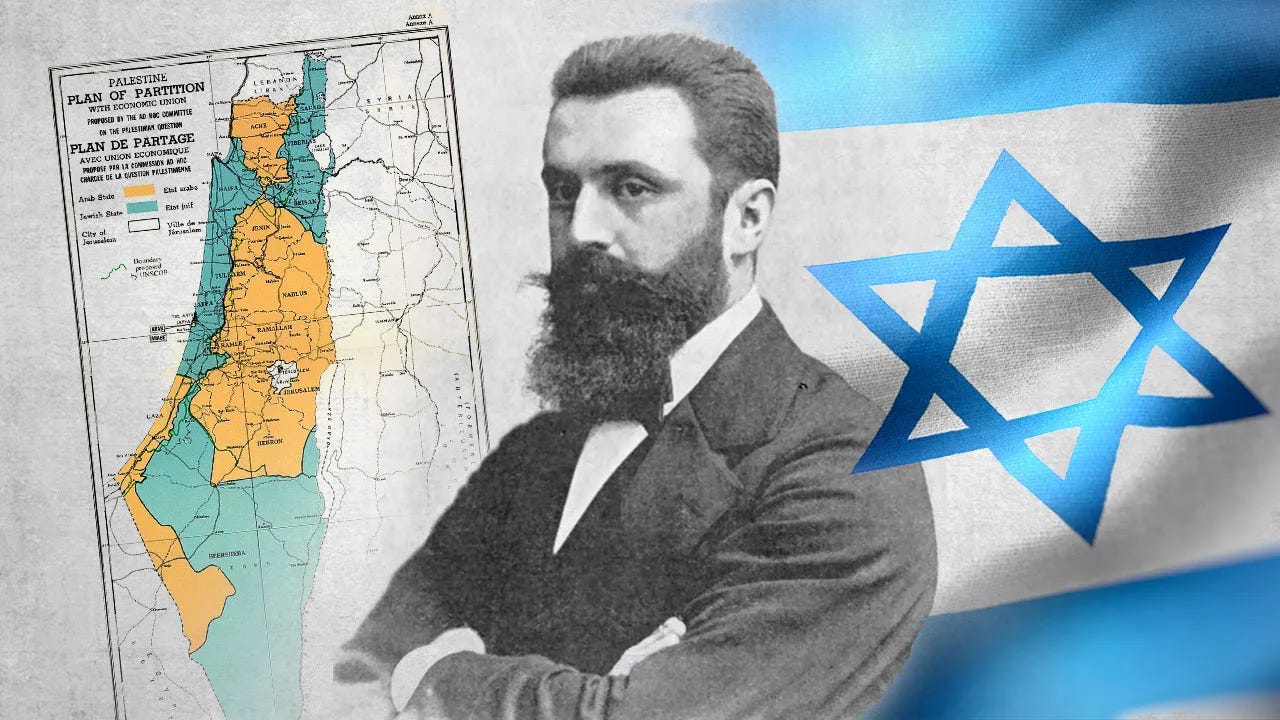Why I hate "Zionism"
It frames the entire issue incorrectly
I hate “Zionism.” Not Zionism. But “Zionism” - the word. It’s such a misleading distraction!
This past week’s haftorah, from the book of Yeshaya, was about the final redemption. The return of the Jewish People to their homeland. The rebuilding of the Beit HaMikdash. Peace, justice, wellbeing and prosperity. “And you shall be called, City of God, Zion of the Holy One of Israel.”
Is Zionism bringing this about? Is it reishit tzmichat ge’ulateinu, the first flowering of redemption?
A lot would appear to rest on that. Recently a charedi man said to me, “Of course your kids go to the army, you believe that this is part of the geulah. But we don’t!” The haftorah ended with the verse “Ve’amech kulam tzadikim, l’olam yirshu aretz” - yet the Zionists were hardly tzadikim! And Rav Dov Landau said that it would have been better had the state not come into existence, as there wouldn’t have been such Arab hatred.
But this is a grave misunderstanding.
Yes, there are religious Zionists who devoutly believe that it’s reishit tzmichat ge’ulateinu. Personally? I have no idea! If anything, I’m rather skeptical (though that may be due to my being Mancunian and having a generally bleak perspective).
But what difference does it make?! The fact is that there are seven million Jews living in Israel today, who need protecting from millions of hostile Arabs! The obligation to contribute to national defense has absolutely nothing to do with Zionism.
And I’ll go even further than this. At the beginning, religious Zionism did not necessarily see it as being about a messianic process. True, Rav Kook did - he firmly believed that Mashiach was coming in the 20th century - but not all of his peers and predecessors did.
For some idealists, Zionism is thought to be about new Jewish identities of nationhood, of cultural revival, or about advancing the messianic process. For its opponents outside Israel, Zionism is about conquest, oppression and racism. For its opponents in the ultra-Orthodox Jewish community, it’s about secularism. But for the millions of people who had to flee Europe, and those in England and America who realized what needed to be done to help them, it was simply about survival.
And that’s why the early Zionists - including rabbinic authorities - were not all wed to the idea that the task at hand was to reconstitute a Jewish homeland in Eretz Yisrael. This was especially because it did not necessarily seem to be a viable idea, for all kinds of reasons - political, agricultural, and so on. And that’s why other options were investigated - the famous “Uganda Plan” (which was actually Kenya) is best known, but there were also investigations into Tasmania, Suriname, and other locations. Of course everyone ideally wanted Eretz Yisrael, but the primary need was to have a refuge.
Now, what Herzl eventually realized is that these other options, aside from having their own challenges, were never going to work. Because building a homeland, with all the development and agriculture and institutions and so on, is really, really, really hard work. It requires an unbelievable amount of dedication and sacrifice. And you’re just not going to get that level of sacrifice for a land that people don’t feel a connection to. Only in Eretz Yisrael, our historic homeland, the place where Judaism was designed for, would people be willing to make the necessary superhuman effort.
We were incredibly fortunate that this crazy plan eventually worked out. It meant that the hundreds of thousands of refugees after the Holocaust had somewhere to go, with an infrastructure to absorb them (which ultra-Orthodox Jews from Europe were extremely relieved to be able to take advantage of). And, by the way, contrary to what Rav Dov Landau said, that is why there is Arab hatred - not because of Zionism per se, but because hundreds of thousands of Jews moved in to what they saw as being their land in its entirety.
The bulk of people who came to create Israel largely did so much for practical reasons rather than ideological ones. And our obligation today to defend Israel is also practical rather than ideological. There are millions of Jewish lives at stake, it takes an enormous amount of effort to do that, which comes at huge cost, and that cost needs to be shared.
At the same time, we are incredibly fortunate that the only practical way of rescuing Jews turned out to be creating a state in our ancient homeland. And, as I explain in my new book The Lions of Zion: Biblical Natural History and the Significance of Israel, the significance of Israel is not just the historic fact of it being our ancient homeland. It’s also the land that Torah is based around in in all kinds of ways, such that the Judaism that we took into exile retained all kinds of connections to the flora and fauna of the land.
But “Zionism” is a distraction from the urgent matter at hand. Which is survival.




Ditto Norman Kahan’s observation. I can’t turn my usually skeptical eye away from the Ingathering of Jews from all corners of the Globe , the flowering of what was a desolate land less than a century ago, the city of Jerusalem spreading all over the hills of ancient Judea . It should not lead us to idiocy in making policy decisions but… I for one am happy to be enthralled with seeing Prophetic pronouncements coming to life.
Surprised that you don’t think we are in the early stages of Redemption. What more do you need?